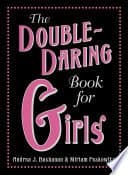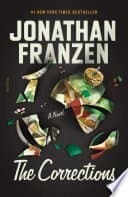Exploring Unhinged, Misanthropic Vigilantes in Literature
Dive into the captivating world of unhinged, misanthropic vigilantes in literature, where blurred morality and extreme ideologies challenge traditional hero narratives.

Books Featured in This Article
Explore the books discussed

Exploring Unhinged, Misanthropic Vigilantes in Literature
Vigilante justice has always been a captivating theme in literary works. The allure of individuals taking the law into their own hands speaks to our innate sense of justice and the frustration with societal structures that often fail us. However, when the typical hero narrative is subverted to present a more unhinged, misanthropic character, it offers a fresh and intriguing perspective. Such characters challenge the conventional definitions of heroism and morality, prompting readers to question the fine line between vigilante justice and outright madness.
Redefining Heroism and Morality
Books like Watchmen and Death Note are prime examples where the protagonists, though fighting for what they perceive as justice, display deeply flawed and often extremist ideologies. The journey of these characters, who traverse the moral landscape with a tunnel vision of black-and-white justice, gives readers a profound way to re-evaluate their own principles and ideals. It’s not just about the thrill; it's about the disturbing introspection these characters provoke.
“Who watches the Watchmen?” - A question that not only drove the narrative but also compelled readers to reflect on the nature of power and responsibility.
For those interested in similar narratives, several novels delve into the psyches of characters who take the law into their own hands, transforming into paranoid, fascistic figures. These literary works serve as profound character studies, exploring the minds of those who view themselves as the ultimate arbiters of justice, often at the cost of their own sanity.
Diving Into Twisted Minds
The appeal of unhinged vigilantes lies in their complexity. Readers are drawn to the dark, often paranoid inner workings of these characters’ minds. It’s an exploration of the thin line between a hero and a madman. What happens when one crosses it?
From stream-of-conscious narrative styles to manifesto-like inner monologues, these novels offer a deep dive into the minds of those who harbor a fervent, almost fanatical belief in their mission. American Psycho by Bret Easton Ellis highlights this with chilling precision, unraveling the mind of Patrick Bateman as he navigates a life drenched in consumerism, vanity, and unrestrained violence under the guise of social justice.
“I had all the characteristics of a human being: flesh, blood, skin, hair; but my depersonalization was so intense, had gone so deep, that the normal ability to feel compassion had been eradicated, the victim of a slow, purposeful erasure. I was simply imitating reality, a rough resemblance of a human being, with only a dim corner of my mind functioning.”
This disconcerting introspection is what makes these characters so compelling. They are not merely villains; they are deeply flawed individuals whose twisted sense of justice and morality urge readers to confront the darker recesses of human nature.
The Blurred Line Between Sanity and Madness
Vigilantes in these literary works often blur the line between sanity and madness. Their journey is not just a fight against external enemies but an internal battle where their sense of reality is in constant flux. Their actions often reflect a deep-seated paranoia and a delusional sense of grandeur.
The compelling factor in stories like Watchmen and Death Note is how they depict the vigilante’s journey. The protagonists start with goals that, on the surface, seem justifiable. For instance, Light Yagami in Death Note initially aims to rid the world of criminals. Yet, his path soon veers into the territory of dictatorial megalomania, questioning not just his methods, but his very sanity.
“I am Justice! I protect the innocent and those who fear evil. I'm the one who will become the god of a new world that everyone desires!” - Light Yagami's declaration offers a glimpse into his distorted self-perception.
Such narratives drive home the point that the road to hell is indeed paved with good intentions. As these characters spiral into an abyss of their own making, readers are left to grapple with the unsettling realization of how thin the veneer of sanity can be.
Societal Reflections and Moral Dilemmas
The allure of these stories goes beyond individual character studies. They reflect societal anxieties and moral dilemmas. From the fear of unchecked power to the consequences of absolute morality, these narratives offer a canvas for exploring real-world issues through a fictional lens.
For instance, Watchmen doesn’t merely present its characters in a vacuum. It reflects Cold War paranoia, the fear of nuclear annihilation, and the ethical quandaries of maintaining peace through mutually assured destruction.
“In a world without constantly wondrous surprises, I have to imagine there’s no more significant surprise than the fear of death out of nowhere.” - A reflection of the era's prevailing dread.
These themes resonate with readers, prompting them to question and reflect on their own world’s complexities. The twisted journeys of unhinged vigilantes often serve as metaphors for the struggles we face as a society, making these novels not just thrilling reads but profound commentaries on human nature.
A Dive into Darkness Worth Taking
If you’re intrigued by the darker facets of vigilante justice and are keen to explore narratives that challenge conventional morality, then diving into the world of unhinged, misanthropic vigilantes is a must.
American Psycho by Bret Easton Ellis is a gripping example of this subgenre. It unflinchingly exposes the stark reality of a mind unbound by social mores, stripping away the facade to reveal a chilling core.
So, grab a copy, immerse yourself in these twisted psyches, and be prepared for a literary journey that will make you question the very essence of justice and morality. It’s a dive into darkness that’s well worth taking.
Key Takeaways
Pros
- Unhinged vigilantes offer a fresh perspective on the traditional hero narrative, challenging conventional definitions of heroism and morality.
- These characters provoke profound introspection, compelling readers to re-evaluate their own principles and ideals.
- The complex and dark exploration of these characters' minds keeps readers deeply engaged.
- Narrative techniques like stream-of-consciousness and manifesto-like inner monologues provide deep psychological insights.
- Characters like those in 'Watchmen' and 'Death Note' offer thrilling plotlines combined with profound character studies.
- These stories reflect societal anxieties and moral dilemmas, offering a canvas to explore real-world issues through a fictional lens.
- Books like 'American Psycho' serve as critical studies of modern society, especially concerning consumerism and moral ambiguity.
Cons
- The morally ambiguous nature of the protagonists can be difficult for some readers to accept.
- Dark and often disturbing themes in these novels might be challenging for readers sensitive to such content.
- Readers might struggle with the complex psychological aspects and the blurring line between sanity and madness.
- The extreme ideologies of these characters might not provide clear-cut answers, leaving readers with unresolved moral questions.
Frequently Asked Questions
About the Author

Book Junkie
Your go-to source for book reviews and recommendations.
You Might Also Like
Related Books
Related Articles

Transformative Reads for Teens: Navigating Life at 17
Discover the power of literature with our curated list of essential books for 17-year-olds. From fiction that inspires self-discovery to empowering non-fiction, these reads provide guidance and comfort during the tumultuous teen years. Uncover the wisdom

Unlocking the Secrets of Dark Academia: A Must-Read List
Dive into the enchanting realm of dark academia with our curated list of gripping novels that explore obsession, psychological intricacies, and haunting atmospheres. Perfect for readers seeking literary adventures akin to films like *Kill Your Darlings* a

Unlocking New Chapters: Inspiring Books for Readers in Their 50s
Discover a curated list of transformative fiction and non-fiction books designed for readers in their 50s. Embrace change, find inspiration, and celebrate life's possibilities with these insightful reads.

Unlocking the Secrets of Monastic Life: 12 Novels Rich in Religious Intrigue
Dive into the captivating world of ancient monasteries and religious power struggles through our curated selection of novels. Discover tales that will enrich your understanding of history while satisfying your love for literary intrigue.



